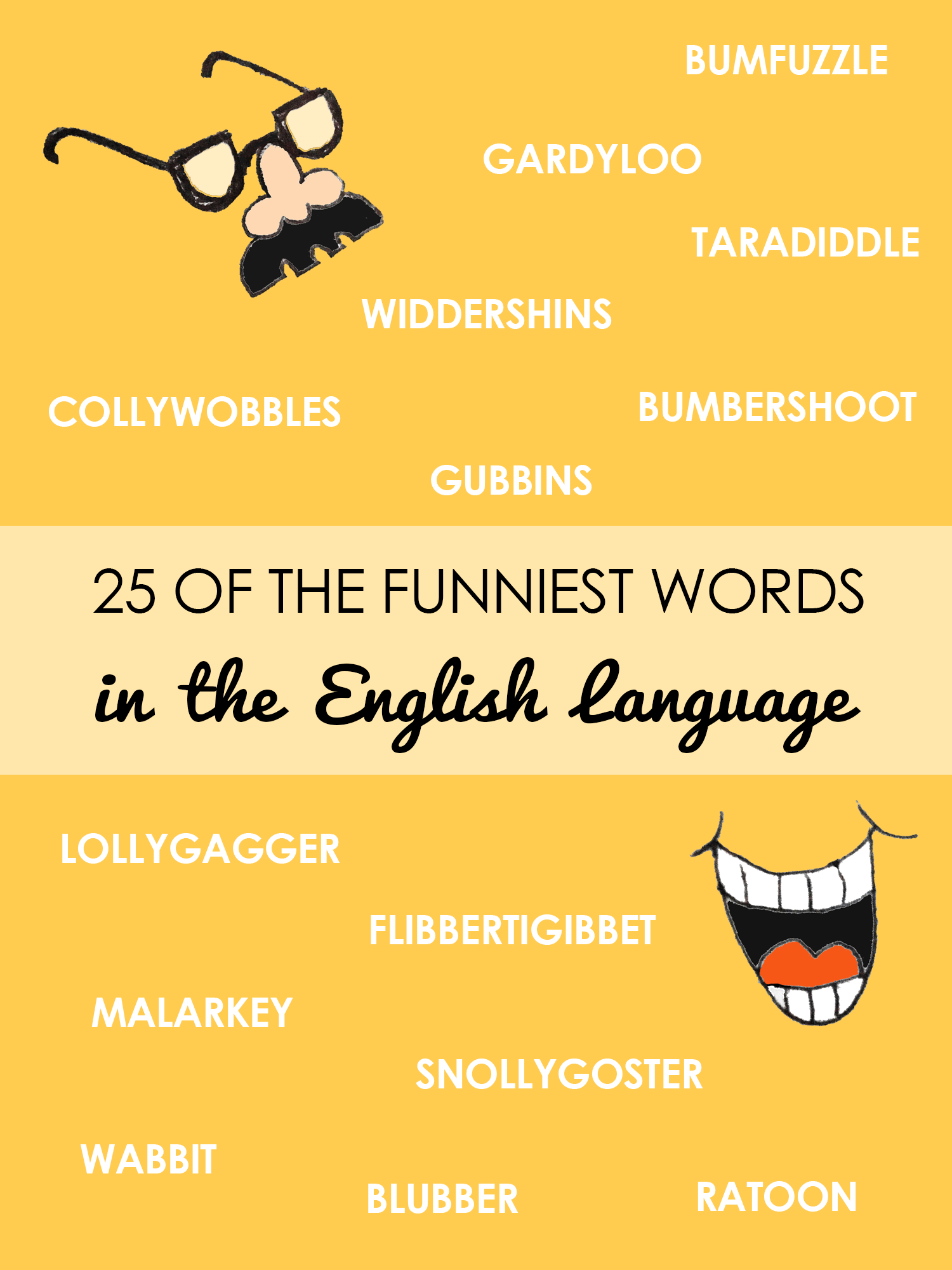
Wait, no! It means to fire somebody!Ĭhinese people used to take along their bedrolls to work. 鱿鱼 (yóu yú) is squid, and 炒 (chǎo) means stir fry. It originally refers to the situation where people take advantage out of chaotic conditions. Today, 摸鱼 (mō yú) refers to situations where people loaf on the job and don’t do their work well. It origins from the Chinese idiom 浑水摸鱼 (hún shuǐ mō yú), literally meaning to catch fish in muddy water. I mean, why do you touch the fish at all? It turns out that touching the fish means slacking off during working hours! 摸 (mō) is to feel or touch, and 鱼 (yú) means fish. Keep on reading – there are more funny words about fish for you! 4.
Random funny words how to#
Ha! And that’s what makes Chinese learning fun! You can also check this article about How to Learn Chinese Faster. Donkeys, horses, cows… I bet you find them somehow ridiculous and amusing. We’ve learned funny Chinese words about farm animals. They have no choice but to show the horses’ or donkeys’ feet when performing tricks. That is why the phrase 露马脚 (lòu mǎ jiǎo) means betraying one’s identity.īe on your guard, and do not betray yourself. However, it is difficult to cover the animal’s feet up. It is to add joy to the festive celebrations. In the Tang Dynasty, Chinese people decorated the donkeys or horses with painted kirin skins. But what does it means to show the horse’s feet? It refers to showing flaws and disclosing the truth. 露(lòu) is to show, and 马脚 (mǎ jiǎo) is the horse’s feet. You can say “拍马屁” directly, or “拍…的马屁” meaning “to kiss up to someone.” For instance, “kissing up to a boss” can be said as “拍老板的马屁” (pāi lǎo bǎn de mǎ pì).

Today, the phrase 拍马屁 (pāi mǎ pì) is to mock people who kiss someone’s ass to make blatant flattery. You'll receive your guide by email in the next few minutes. However, it soon became an action to flatter others, even when the horses are neither good nor strong. They often pat at the strong horse’s butt when they meet, saying, “What a good horse!” to praise the owner. People in China’s Yuan Dynasty glory in raising good horses. People refer someone to patting the horse’s ass to say that he’s flattering or bootlicking someone. 拍 (pāi) is to pat, and 马屁 (mǎ pì) is the horse’s ass. People will say that he was talking big, which is 吹牛皮 (chuī niú pí) – literally means blowing cowhides, or just 吹牛(chuī niú). One was obviously bragging if he claimed to inflate a raft by himself. They need many men to blow air into the hides to inflate them. In ancient China, people build rafts out of animal hides. But, why do you even blow the cow?! It means to boast or brag about something. You can also blend into the Chinese culture by using funny words and slang words! Ready to get some laugh? Let’s dive right in. It helps you to relate one word with another better. You’ll get giggles from these funny words, and that’s the essential part of mastering Chinese. And yes, they are an excellent way to learn Chinese effectively! There are also a lot of commonly spoken funny Chinese words. Learning a language is not about just from books. You’ll find it funny when the meaning is finally revealed! Take some smart guesses before you read in full. Today, let’s learn some funny Chinese words related to animals. But, it is also among the most interesting ones! Undeniably, the Chinese language is the most complex language to learn.

It all depends on how you look at it and how you learn it. Learning a new language is often challenging yet fun.


 0 kommentar(er)
0 kommentar(er)
